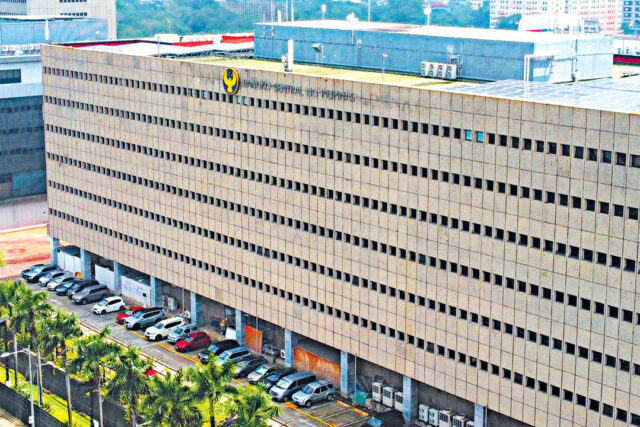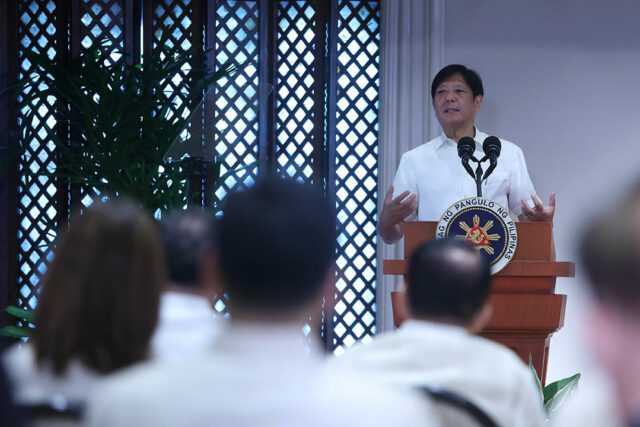China’s best growth target may be none at all
DISAPPOINTING ECONOMIC news is becoming a reliable indicator in China. Another round of monthly reports point to an economy that isn’t falling apart, but is far softer than officials are comfortable with. The worn — and still very accurate — conclusion is that more stimulus is required to meet targets laid out by President Xi Jinping. The story is starting to feel a bit stale.
Every now and then, however, there is something in the mix worthy of extra attention. That was the case when Xi appeared to water down his commitment to meeting the hallowed goal for growth this year, which is around 5%. The People’s Bank of China (PBoC) then took the rare step of issuing a statement accompanying poor figures on credit. These lines fed speculation that interest rates will be reduced soon, perhaps alongside new measures to crank up the expansion. This would be welcome, though the central bank has a record of extreme caution.
First, the latest batch of data, released on Saturday: Retail sales climbed less than anticipated, industrial production missed estimates, investment was soft, and unemployment inched higher. Monday postmortems called for greater attention from Beijing to address the dour picture, while simultaneously predicting that any response would be unequal to the task. Ocean liners like the Chinese economy, the world’s second largest, don’t just change course immediately.
What if the Communist Party’s growth target didn’t matter quite so much? As China’s expansion slowed from the heady clip of the late 1990s and early 2000s, when double-digit advances weren’t uncommon, the objective has become more challenging. The risk is that officials, especially in the provinces, pursue projects of doubtful value, but contribute to meeting the numbers. There has long been suspicion among investors that statistics are massaged to produce the right result. Top leaders, rarely inclined to set radically different goals from year to year, then get to make speeches lauding the performance.
The practice of setting targets is long-standing. Beijing sensibly suspended it in 2020 as the pandemic descended. Gross domestic product eked out a gain of about 2% that year. The 5% target does provide for a small amount of latitude above or below, though it would be a brave cadre who assumed they had a pass. Falling too far below would indicate failure, though coming in above would likely be career enhancing. The consensus among private sector economists is that undershooting is likely. Goldman Sachs Group, Inc., Morgan Stanley, and Citigroup, Inc. are among firms that think something in the high 4% range is realistic.
Toning down the emphasis on 5% would have to come from the very top. Xi appeared to oblige on Thursday, saying that officials should “strive to achieve” the goal. In July, the party’s senior decision-making body demanded the aspiration be “resolutely” met. There’s debate as to whether the linguistic tweak reflects a shift in the underlying approach, but the president doesn’t strike me as a person who wanders off script. Assuming Xi was signaling some tolerance, this is to be applauded. There’s an argument to go further and scrap targets altogether.
Also handy was the PBoC’s dangling of initiatives to put a floor under the expansion. “We will make maintaining price stability and pushing for the mild rebound in prices an important consideration for monetary policy,” the bank said late Friday. All monetary authorities seek stable prices; in China’s case, this means being more attuned to the risks of deflation. Consumer-price increases are hovering a bit above zero.
Beijing also took some modest steps toward addressing the challenges of an aging society and a contracting labor force. The retirement age for men was raised by three years to 63, while women will retire at 55 and 58, depending on their roles. This won’t move the needle on GDP any time soon. The changes will be phased in over more than a decade. But it is a recognition that China has a problem at both ends of the life spectrum: The country is producing fewer kids and folks are living longer. While notable and the first change in the retirement age since 1978, it’s fair to ask whether this step comes too late.
China waited a long time to bury the one-child policy and is now trying to lift the birthrate.
Sometimes edicts work too well. Beginning to recognize that arbitrary GDP targets aren’t sacrosanct is healthy. It has the added advantage of reflecting reality.
BLOOMBERG OPINION















